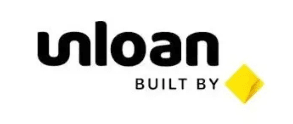Fixed rate about to run out? Here are 3 things you can do

We show you the next steps to take if your fixed rate home loan is about to end.
 Sponsored by Unloan. The first home loan with an increasing discount.
Sponsored by Unloan. The first home loan with an increasing discount.
With Unloan, you don't just start with a low variable rate — you also receive an extra 0.01% p.a. discount every year for up to 30 years. This article is part of our Borrower Support series.
Back in 2020 and 2021, many borrowers locked in very low fixed rates for their home loans.
But many of those fixed periods are coming to an end this year. A lot of borrowers are looking at a massive jump in monthly repayments when they switch over to variable rates.
Finder research found that the average home loan rate almost doubled last year – from 3.45% p.a. in April 2022 to 6.15% p.a. in November!
But an end to your fixed rate doesn't have to be bad news. There are options available.
Let's look at 3 key things you can do if your fixed rate is about to run out.
1. Refinancing
One of the most straightforward ways to tackle rising interest rates is to look at refinancing.
Refinancing generally (though not always) means switching to a new lender. It offers a number of advantages to borrowers, including the potential for a lower interest rate. In turn, this means lower repayments and potentially a shorter loan period.
Certain providers, like Unloan, also offer an annual rate discount for every year you stay with them, too*. So there can be benefits to maintaining lender loyalty.
Some borrowers also opt to refinance to add extra features to their home loan.
Loan features like offset accounts, extra repayments and redraw facilities are now quite mainstream.
But if you took out your loan 15 or so years ago and haven't already refinanced, there's every possibility that you're missing out on some of these features. New customers often score better deals.
Of course, there are other factors to consider too.
The first is fees. Although repayments may end up being lower, application fees can potentially negate these savings.
So if you do look at refinancing, it's worth looking at a lender like Unloan, that doesn't charge fees for loan applications or refinancing.**
Another key consideration is your credit score. Refinancing can have a significant impact on your credit score and make it trickier for you to secure new loans for some time afterwards.
If you're considering buying again in the near future – for example, to expand a property portfolio or to move into your dream home – it may be worth holding off on refinancing for the time being.

2. Speak to your broker
Brokers tend to be associated with helping you get a loan – but they're actually there to help you throughout the lifespan of the loan.
Working with a broker can be a great way to determine whether you're better off repricing (renegotiating the interest rate on your current loan) or refinancing (taking out an entirely new loan).
Brokers tend to have more leverage than individual borrowers. There's generally a pre-existing relationship with lenders and lenders are aware that brokers can potentially drive clients to competitors.
They also have specialist knowledge of the home loan landscape. It's their profession, so they can bring expertise to complex situations that might not otherwise be accessible.
Additionally, brokers have a legal obligation to act in your best interest. They're able to give you a more unbiased opinion about the best course of action for your specific circumstances, which can help with your decision-making process.
🔥 Hot tip! When you're meeting with your current or new broker, it's always a good idea to ask them some questions about who they work with. You can also ask them how their partners can factor into the deals they're able to secure.
Good brokers will be transparent about this – so if they're not, it might be time to look elsewhere.
3. Speak to your lender
When it comes to renegotiating a loan, some borrowers choose to approach their lender directly.
If you're choosing to opt for this route to seek a discount on your interest rate, it's very important that you equip yourself and do your research first.
It's a good idea to ask yourself these questions before you enter into negotiations. Having the answers handy will put you in a much stronger position to ask for a discounted interest rate.
- What is your lender offering new customers – and can you get it?
- What interest rates are competitors offering on comparable loans?
- How long have you been a customer? Loyalty can pay off.
- Have you been consistent with your repayments?
- How much of your loan have you already repaid?
It's also good to have a follow-up plan in mind. If your lender isn't willing to budge, are you able to absorb the costs for the moment?
Or would you be better off refinancing elsewhere?
For some borrowers, the end of their fixed rate could mean they simply can't afford the new repayments. In this case you should speak to your lender about a temporary pause on repayments or discuss hardship arrangements with your lender.
It's still important to come prepared. It's worth having a clear timeline laid out and a detailed plan.
This will help demonstrate your seriousness and commitment to repaying the loan, which will put you in a better negotiating position.
Learn more about Unloan
Compare other products
We currently don't have that product, but here are others to consider:
How we picked these